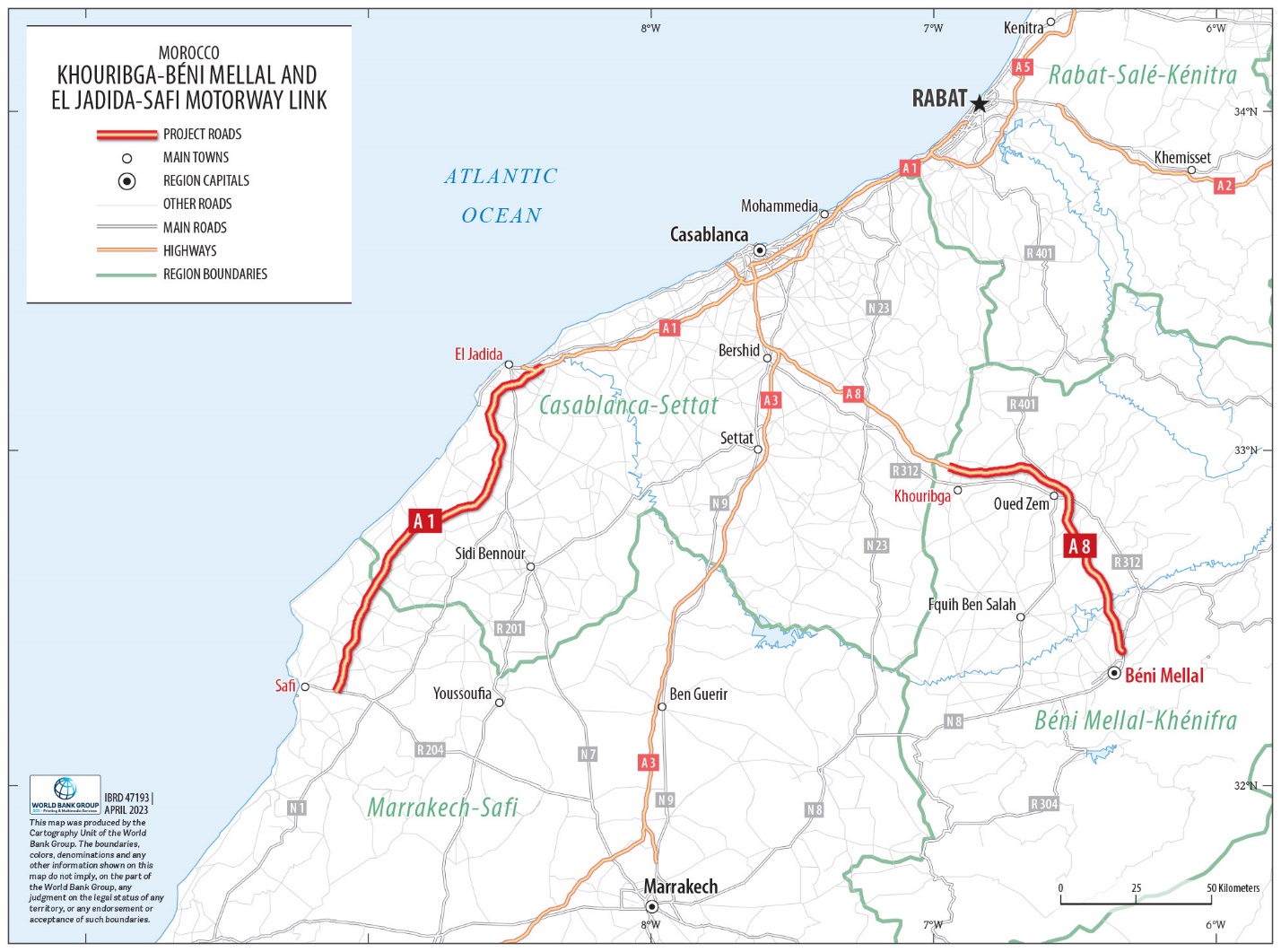 Roundabout section of road in Fez, Morocco. (Shutterstock.com/SmallWorldProduction)
Roundabout section of road in Fez, Morocco. (Shutterstock.com/SmallWorldProduction)
Infrastructure investments have a powerful and positive multiplier effect on the overall economy. Road infrastructure is crucial for sustainable economic growth, attracting business investment, and facilitating basic trade (nationally and regionally) and commerce. The state of a country's roads significantly influences its competitiveness. Companies often choose locations based on access to well-maintained roads for efficient trade and transportation.
To explore this, the World Bank's Middle East and North Africa (MENA) Transport Team has examined the critical factors influencing businesses in Morocco when selecting their operational bases. The actual mechanisms of improvement of accessibility and its impacts on private sector productivity can be modeled given data availability. However, this method requires geographically granular data over a relatively long-time span–which is not always feasible. To understand this aspect well, the team initiated a study to assess how enhanced spatial accessibility affects firms' choices in investment locations. A pilot survey was also employed to explore how road infrastructure impacts firms' productivity. The survey aimed to identify any potential benefits resulting from improved market accessibility due to the expansion of motorways.
The team administered a questionnaire to a total of 100 firms in Morocco. The majority, about 80%, were small firms with less than ten employees, and the remaining 20% had between 11 and 60 employees. The survey targeted firms located on the most recently completed links on the motorway network – i.e., those along the Khouribga-Beni Mellal and those along the El Jadida-Safi motorway with fifty (50) firms surveyed along each belt. While 57 of the enterprises in the survey existed before the opening of the respective motorway, the remaining 43 were established after the motorways were opened. The surveyed firms mostly work in the trade, construction, services, transport, and industry sectors.

Fig. 1: Map of the Khouribga-Beni Mellal and the El Jadida-Safi Motorway Link
An interesting finding from the survey is the increase in employee numbers following the highway’s opening. Among the firms surveyed in Morocco, 58% reported an increase in employees compared to their previous workforce after the highway opened. Regarding market accessibility, 63% of the surveyed firms noted an overall positive impact on their access to domestic markets due to the motorway. Many of these firms highlighted time savings and ease of travel facilitated by the motorways, thus supporting productivity. Additionally, 78 firms described motorway access as “somewhat important,” “important,” or “absolutely critical.”
Spatial accessibility to a motorway is viewed as essential by firms. Motorways enable easy access to ports, which are gateways for international trade. Motorways are, therefore, key for all firms integrated into global/regional value chains and markets. Although the study didn't quantify the impact of motorways on productivity, firms don't see them as essential for accessing a labor force, but rather crucial in access to markets: only a quarter of firms reported that proximity to market was “absolutely critical,” while almost as many declared that this factor was “not important.”
Spatial access to an urban center was rated as “absolutely critical” by 56% of the surveyed firms, underscoring its importance over spatial proximity. As expected, the cost of land is also a decisive factor in location decisions, with 59% rating it as “absolutely critical” or “important.” The survey, however, did not address localization economies, with only 28% considering the clustering of similar firms as "absolutely critical" or "important."
New businesses established after the opening of motorways were the main contributors to job creation. Indeed, 68% of firms that relocated their businesses or expanded their operations after the motorways opened generated new jobs. This, therefore, suggests a deliberate decision by enterprises regarding their business location, indicating a direct link between motorway openings and job creation. The closer to the motorway, the better: of the enterprises newly established near a motorway, 86% were located less than 10 km from the roadway. These firms highlighted the importance of the motorway in their choice of location. For all sectors combined, 81% of enterprises that reported creating new jobs are located less than 10 km from the motorway.
It's worth noting that none of the firms that chose to relocate their businesses or expand their operations received government assistance for the transfer or expansion of their operations. The results show that firms assign very little importance to public incentives or proximity to an administrative department, with only 20% of enterprises surveyed indicating that these measures were “absolutely important.”
Based on these qualitative results, motorways appear to be instrumental in promoting job creation among enterprises newly established along their route. Enterprises choose to relocate close to the motorway to increase their spatial accessibility to markets, and access to relatively cheaper land. While we could not capture the impacts of agglomeration effects’ loss, our survey highlights that it is possible to capture, to a certain extent, the effects of transport infrastructure investments with simple tools and analysis.





Join the Conversation